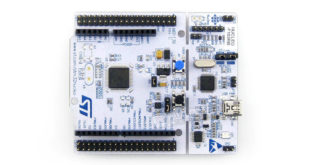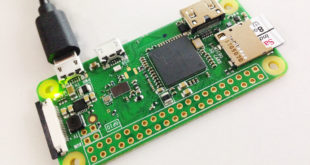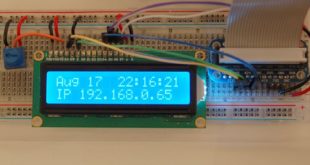The MQ-3 alcohol sensor is useful for projects that tests levels of alcohol, benzine, hexane or LPG in the air but it is most popularly used as a breathalyzer (breath analyzer) for someone who drank beer, wine or other liquor. Learn how to use this gas sensor in this tutorial.
Read More »How to Use L298N Motor Driver
You can drive an LED on or off using a microcontroller like Arduino or PIC. There’s no problem there because the 20 mA or so current from the pins is enough. You can’t drive loads that require much more current like a motor. This is where the L298N motor controller …
Read More »STM32 Nucleo Serial Communication
Debugging through the serial port is one of the ways to find errors in your code. In this tutorial, I'll show you how to add serial communication function to your STM32 Nucleo board.
Read More »Input and Output with STM32 Nucleo
We managed to blink an LED in the previous tutorial. This time, still featuring the STM32F1 Nucleo, we will add a button that will control the attached LED and a simple clap switch.
Read More »Blink a LED with STM32 Nucleo
On the previous tutorial, we managed to create our first program with the STM32 Nucleo board. Now we will dig deeper on the pinout and other functionalities of the board.
Read More »Getting Started with STM32 Nucleo and Mbed
The STM32 Nucleo boards by ST pack a lot more power than an Arduino UNO and have headers aligned the same way with the latter which makes it compatible with Arduino shields.
Read More »How to Interface a Thermistor
A thermistor is a special resistor whose resistance varies with temperature. Learn how to interface a thermistor with a microcontroller in this tutorial.
Read More »How to Use a Web Cam with Raspberry Pi
The Raspberry Pi comes with a camera connector on board. But if you don't want to buy the official camera and use a web camera instead, you can! I'll show you how to display a video from the webcam on a web server hosted by a Raspberry Pi
Read More »Setting up a Raspberry Pi Zero Web Server
I finally got my hands on a Raspberry Pi Zero W and started the usual tinkering. For those unaware, this smaller version of the Raspberry Pi packs a 1 GHz CPU and 512 MB of RAM. But what excites me the most is the WiFI and Bluetooth connectivity that comes …
Read More »How to Use LCD without Potentiometer
Maybe you’ve used an HD4480-based LCD before (pictured) and you know that it requires a potentiometer for adjusting contrast. Is there a way to remove this potentiometer completely?
Read More »





